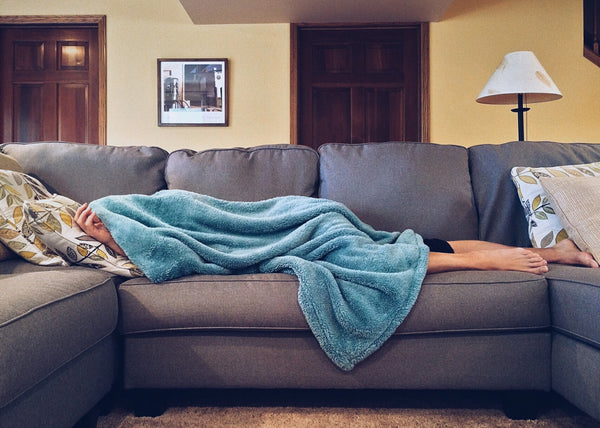You feel tired. You get comfortable in your bed, following the usual routine. When you wake up, even though you got 8 hours of sleep, it feels like you got half of that.
There are many factors to consider if you don’t feel refreshed after a full night of rest. Medical issues, such as sleep apnea, may be impacting the quality of your sleep. These issues should always be investigated by a medical professional if your sleep quality is not where you want it to be.
It is also possible that your mattress could be the cause of your sleep problems. Any mattress that is more than 10 years old may not be offering the supports your body requires for sleep. There are other ways that your bed could be affecting your health as well.
The Roles That Your Bed Plays in Your Overall Health
Take a moment and ask yourself if you are you experiencing any of the problems below.
Issue #1: Back Pain

When your mattress fails to provide you with the support your body needs each night, the most common symptom experienced is back pain. When there are pushes or pulls on your spine as you sleep, then more pressure is placed on your tendons and ligaments. This pressure then causes discomfort to other parts of your body, most notably the back.
Up to 80% of adults experience back pain after sleeping. There may be reasons for this pain that go beyond the quality of your mattress. If you wake up each morning feeling sore, however, then you have a telltale sign that your bed could use an upgrade.
If you cannot afford a new mattress, try using a mattress topper that will give you the proper amount of support your body needs.
Issue #2: Neck Pain

Another common complaint that people have after a night of rest is neck pain. Neck pain occurs when your head is unable to remain even with the rest of your body. Tipping your neck forward or backward while sleeping will impact your muscles, tendons, and ligaments, causing pain that can be mild, moderate, or severe.
There are two ways that your bed impacts this health issue. Your pillow and the mattress both contribute to the development of neck pain. If your mattress sags in the middle or lacks a supportive edge, then your body may compensate by placing extra stress around your neck to remain in a sleeping position.
Pillows that place the head out of line with the rest of the body will contribute to this issue as well. Try to sleep on a single flat pillow to support your neck and head at night. Use a second pillow if additional comfort is necessary. Consider an upgrade to an upright mattress if you have congestion or snoring issues at night.
Issue #3: Allergic Reactions

Your bed collects many items that may impact the quality of the sleep you receive each night. Dust mites are one common allergy trigger that may be causing you to wake up at night. These mites love humid rooms and feed off the skin particles you drop at night. If you wake up with itchy eyes, coughing, sneezing, or shortness of breath, then you may have a dust mite problem.
To get rid of the dust mites, make sure to wash your bedding in hot water whenever possible. If you’re not washing your bedding every week, then you’ll want to start doing so right away. There are additives, such as De-Mite, that can be added to your laundry to kill them off too.
Frequent dusting and vacuuming will also keep dust mite population numbers down.
Issue #4: Heat

Some mattresses encourage night sweats while you’re sleeping. If you wake up and the mattress or bedding feels damp, then your sleep environment is too warm and may be impacting your quality of sleep.
Certain mattresses, such as memory foam, may contribute to this issue too.
To counter this issue, try to wear clothing to bed that is made from a breathable fabric. Linen and cotton are two excellent options. You also have the opportunity to sleep without clothing to reduce your body temperature at night.
You might think about upgrading your mattress to one that incorporates cooling technology to prevent this issue as well. If your finances are not in a position to purchase a new mattress, then try setting up a fan near your headboard that will keep you cool at night.
Running a ceiling fan in the room may be helpful for some people as well.
Issue #5: Firmness

A bed must provide you with a certain amount of give while you are sleeping. You’re spending 7-9 hours on that surface each night, which means it needs to give you comfort. Mattresses which are too firm have the tendency to place too much pressure on critical joints, such as the hips, shoulders, and knees.
When you experience pain in these areas, it may radiate to your back and neck. It may also contribute to muscle tension, which may lead to the development of headaches, migraines, and other medical conditions.
The opposite can be true for some individuals as well. A mattress which is too soft may also place stressors on certain joints. A soft mattress may also cause extra pressure points on back vertebrae, which often leads to pain development in the morning.
To counter this issue, a mattress topper which offers more give may be able to provide you with the comfort that you need. Choose a topper which is able to correct the issue you are experiencing until you can afford to upgrade your mattress.
Issue #6: Bed Orientation

Some individuals struggle to sleep well if their heads are pointed in a northerly direction. In the southern hemisphere, that would mean sleep struggles would occur if the head is pointed in a southerly direction.
That means there may be a literal right side of the bed that can help you to sleep better at night.
An easterly or westerly bed orientation is considered a best practice if sleep struggles continue after a medical checkup and other bed upgrades have been used. Consider rotating your bed in a way that allows you to get up on the right (not left) side of the bed each morning in addition to sleeping with a better orientation.
How Well Are You Sleeping at Night?

If you have gone through a few consecutive nights of poor sleep and this is unusual for you, then a conversation with your doctor should be a top priority.
When you get the all-clear on your health, it is time to start looking at the quality of your bed. If you have a lousy mattress, then your sleep quality will be reduced. A high-quality pillow and breathable bedding should be part of your sleep routine as well.
Pay attention to your body. If it aches when you wake up, then there is evidence to suggest your bed might not be helping you sleep. Take whatever actions are necessary to improve this issue so that you can return to the restorative sleep you need as soon as possible.




